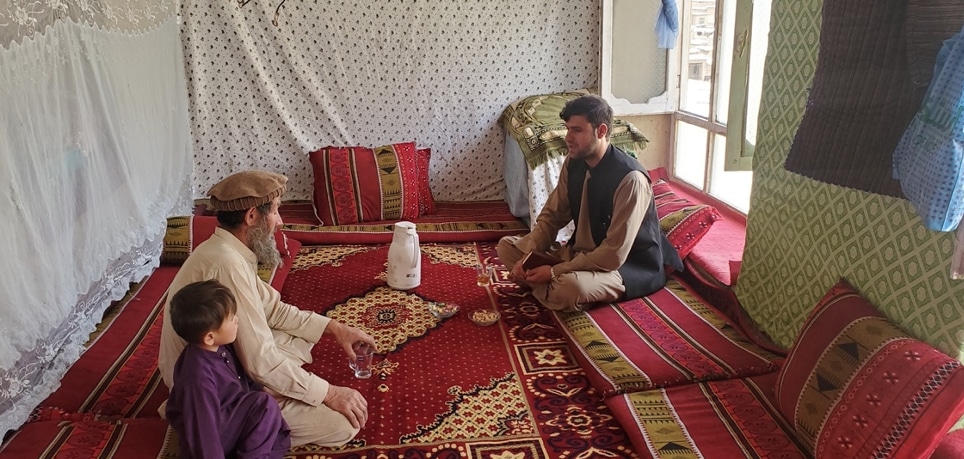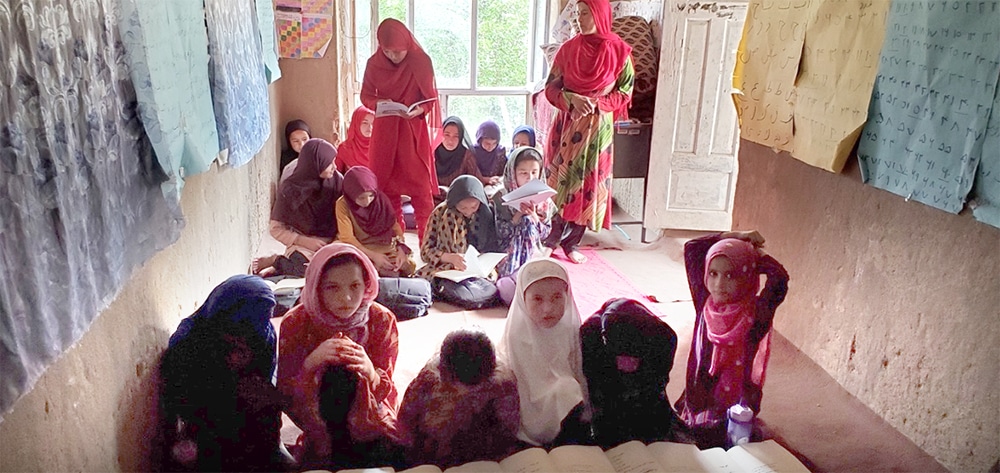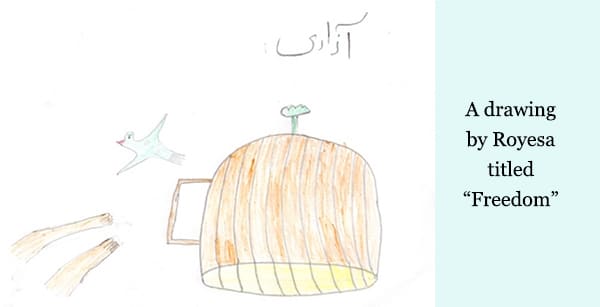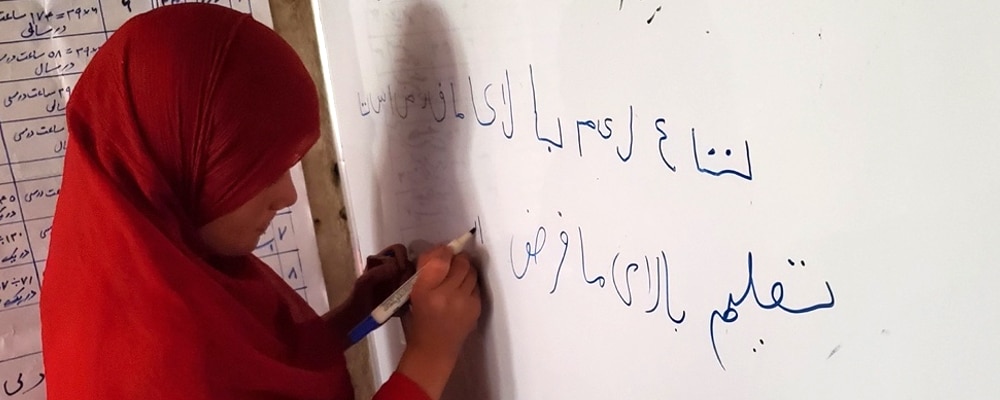An Education Back on Track: Royesa’s Story
In the Ishkashan Village of Badakhshan District, Afghanistan, primary education is not a guarantee. Although all children are expected to attend primary school through sixth grade, the barriers to attendance are high. In sparsely populated, mountainous areas, formal school buildings are often a long distance—certainly too long for young children to access—and systemic issues related to poverty add to the challenges. Community-Based Education (CBE), in which small highly localized classes are held in a community building, provides an important bridge to education for the most remote communities.
Royesa is one of the children taking advantage of the opportunity afforded by her local CBE classroom. A 10-year-old girl from Ishkashan Village, she has become an inspiring example of the importance of education. Royesa is currently studying in the second grade at a CBE class established by CAI in partnership with the Welfare Association for the Development of Afghanistan (WADAN). But, like so many in her village, Royesa’s path to learning was not without obstacles.
Despite her initial enrollment and early attendance, Royesa’s teacher, Shukria, was concerned about her sudden absence from class. Shukria informed a child protection team that Royesa’s father had tasked her with caring for the family’s cattle instead of going to school.
The child protection team visited Royesa’s mountainous village and met with her parents. During their conversation, Royesa’s father, Mr. Noor Mohammad explained that his demanding work as a daily wage laborer for a construction company left him with no one to care for their cows, which was their primary source of financial support. Consequently, he asked Royesa, his eldest daughter, to leave school and take responsibility for grazing the animals.

Child Protection Team Member Meeting with Royesa’s Father
Understanding the potential impact on Royesa’s future, the child protection officers worked hand in hand with Royesa’s parents. Financial constraints were a common cause of student absence in the region, compounded by other challenges like remote settings, inaccessible routes, insecurity, and cultural restrictions.
With compassion and conviction, the Child Protection officers emphasized the importance and potential ripple effect of Royesa’s education and successfully convinced her parents to reconsider their decision. In the end, Royesa’s parents agreed to allow her to attend school. In mid-May, the officers followed up with the school, and her teacher confirmed Royesa’s consistent attendance, noting her joy and enthusiasm in the classroom.
Royesa herself expressed her happiness and gratitude for the opportunity to attend school and join her classmates and her hope for a future career in education.
“I am very happy to attend class and be with my classmates. I completed the first grade with good marks, and I want to become a teacher and educate other children.”

Royesa Reading with her Classmates
Mr. Dor Mohammad, a community elder, recognizes the transformative impact of education on the lives of children like Royesa.
He added, “I appreciate the CBE classes established by WADAN and extend my thanks to the Central Asia Institute (CAI) for their support and funding. They are making a real difference in our community.”
Royesa’s journey serves as a powerful reminder that education should never be delayed. Through the collective efforts of organizations, communities, and supportive partners, barriers can be overcome, ensuring a brighter future for all children, regardless of their circumstances.







